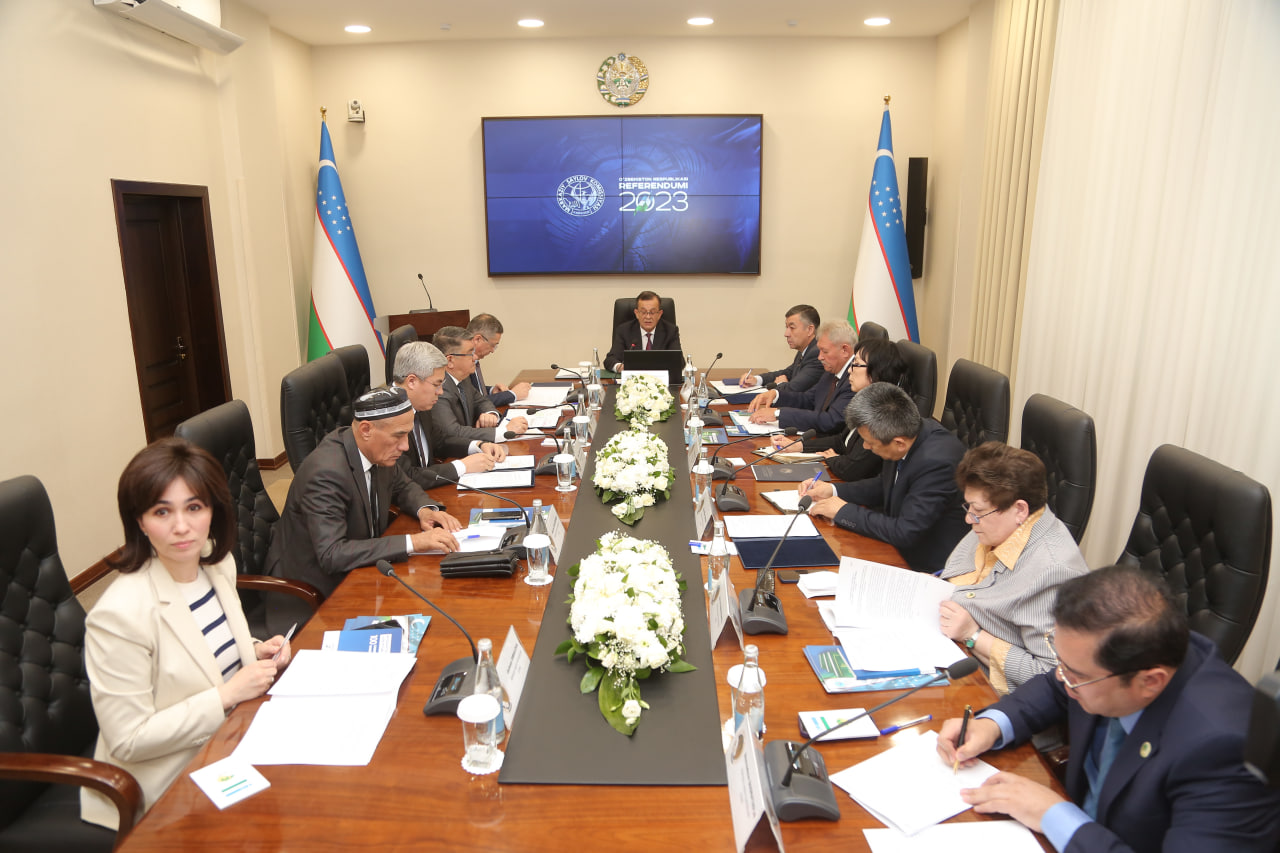 4029
4029
OSCE Human Dimension Commitments
Extracts
Elections
Copenhagen 1990
(5) [The participating States] solemnly declare that among those elements of justice which are essential to the full expression of the inherent dignity and of the equal and inalienable rights of all human beings are the following:
(5.1) - free elections that will be held at reasonable intervals by secret ballot or by equivalent free voting procedure, under conditions which ensure in practice the free expression of the opinion of the electors in the choice of their representatives;
(…)
(6) The participating States declare that the will of the people, freely and fairly expressed through periodic and genuine elections, is the basis of the authority and legitimacy of all government. The participating States will accordingly respect the right of their citizens to take part in the governing of their country, either directly or through representatives freely chosen by them through fair electoral processes (…)
(7) To ensure that the will of the people serves as the basis of the authority of government, the participating States will
(7.1) - hold free elections at reasonable intervals, as established by law;
(7.2) - permit all seats in at least one chamber of the national legislature to be freely contested in a popular vote;
(7.3) - guarantee universal and equal suffrage to adult citizens;
(7.4) - ensure that votes are cast by secret ballot or by equivalent free voting procedure, and that they are counted and reported honestly with the official results made public;
(7.5) - respect the right of citizens to seek political or public office, individually or as representatives of political parties or organizations, without discrimination;
(7.6) - respect the right of individuals and groups to establish, in full freedom, their own political parties or other political organizations and provide such political parties and organizations with the necessary legal guarantees to enable them to compete with each other on a basis of equal treatment before the law and by the authorities;
(7.7) - ensure that law and public policy work to permit political campaigning to be conducted in a fair and free atmosphere in which neither administrative action, violence nor intimidation bars the parties and the candidates from freely presenting their views and qualifications, or prevents the voters from learning and discussing them or from casting their vote free of fear of retribution;
(7.8) - provide that no legal or administrative obstacle stands in the way of unimpeded access to the media on a nondiscriminatory basis for all political groupings and individuals wishing to participate in the electoral process;
(7.9) - ensure that candidates who obtain the necessary number of votes required by law are duly installed in office and are permitted to remain in office until their term expires or is otherwise brought to an end in a manner that is regulated by law in conformity with democratic parliamentary and constitutional procedures.
(8) The participating States consider that the presence of observers, both foreign and domestic, can enhance the electoral process for States in which elections are taking place. They therefore invite observers from any other CSCE participating States and any appropriate private institutions and organizations who may wish to do so to observe the course of their national election proceedings, to the extent permitted by law. They will also endeavour to facilitate similar access for election proceedings held below the national level. Such observers will undertake not to interfere in the electoral proceedings.
Paris 1990 (A New Era of Democracy, Peace and Unity)
We affirm that, without discrimination, everyone (…) has the right: (…) to participate in free and fair elections
(…)
We decide to establish an Office for Free Elections in Warsaw to facilitate contacts and the exchange of information on elections within participating States.
Geneva 1991
The participating States will consider favourably, to the extent permitted by law, the presence of observers at elections held below the national level, including in areas inhabited by national minorities, and will endeavour to facilitate their access. (…)
Budapest 1994
The ODIHR will play an enhanced role in election monitoring, before, during and after elections. In this context, the ODIHR should assess the conditions for the free and independent functioning of the media.
Lisbon 1996 (Summit Declaration)
9. (...) Among the acute problems within the human dimension, the continuing violations of human rights, such as (...) electoral fraud (...) continue to endanger stability in the OSCE region. We are committed to continuing to address these problems.
Istanbul 1999 (Summit Declaration)
26. With a large number of elections ahead of us, we are committed to these being free and fair, and in accordance with OSCE principles and commitments. This is the only way in which there can be a stable basis for democratic development. We appreciate the role of the ODIHR in assisting countries to develop electoral legislation in keeping with OSCE principles and commitments, and we agree to follow up promptly ODIHR’s election assessments and recommendations. We value the work of the ODIHR and the OSCE Parliamentary Assembly - before, during and after elections - which further contributes to the democratic process. We are committed to secure the full right of persons belonging to minorities to vote and to facilitate the right of refugees to participate in elections held in their countries of origin. We pledge to ensure fair competition among candidates as well as parties, including through their access to the media and respect for the right of assembly.
Istanbul 1999 (Charter for European Security: III. Our Common Response)
25. We reaffirm our obligation to conduct free and fair elections in accordance with OSCE commitments, in particular the Copenhagen Document 1990. We recognize the assistance the ODIHR can provide to participating States in developing and implementing electoral legislation. In line with these commitments, we will invite observers to our elections from other participating States, the ODIHR, the OSCE Parliamentary Assembly and appropriate institutions and organizations that wish to observe our election proceedings. We agree to follow up promptly the ODIHR’s election assessment and recommendations.
Porto 2002 (Decisions: Decision No.7/02 on Election Commitments)
The Ministerial Council,
Recalling the provisions of the 1990 Document of the Copenhagen Meeting of the Conference on the Human Dimension of the CSCE,
Noting that additional commitments…have supplemented those provisions,
Reaffirming the determination to implement these commitments,
Acknowledging that democratic elections can be conducted under a variety of electoral systems,
Recognizing the ODIHR’s expertise in assisting participating States in the implementation of election-related commitments,
Taking into account PC Decision No. 509, on international standards and commitments: a practical guide to democratic elections best practice,
Calls upon participating States to strengthen their response to the ODIHR’s recommendations following election observations (…)
Maastricht 2003 (Decisions: Decision No. 5/03 on Elections)
The Ministerial Council,
(…)
Welcoming the continuing efficient co-operation between the ODIHR and the OSCE Parliamentary Assembly in election monitoring,
Welcoming the document “Existing Commitments for Democratic Elections in OSCE Participating States: A Progress Report” (ODIHR.GAL/39/03), which was prepared by the ODIHR and submitted to the participating States in June of this year,
Recognizing in particular the need for confidence by the electorate in the entire process, for transparency of election procedures, and for accountability on the part of authorities conducting elections, calls upon participating States to further enhance their co-operation with the ODIHR in this field,
Tasks the ODIHR to consider ways to improve the effectiveness of its assistance to participating States in following up recommendations made in ODIHR election-observation reports
(…)
Brussels 2006 (Decisions: Decision No. 19/06 on Strengthening the Effectiveness of the OSCE)
The Ministerial Council,
(…)
1. Thanks the ODIHR for the work carried out under Ministerial Council Decision No. 17/05 paragraph 2 and takes note of its report issued on 10 November 2006;
(…)
3. Reminds the participating States that they should keep their legislation and practices in line with OSCE commitments;
4. Takes note of the assessment regarding the present state of implementation of existing commitments by participating States and emphasizes, in particular, that participating States themselves are responsible for the effective implementation of their commitments undertaken in the OSCE. The ODIHR, in this respect, plays an important role in assisting them;
5. Tasks the Permanent Council, taking into account the recommendations by ODIHR and other relevant OSCE institutions, to address the implementation challenges in the areas outlined in the report, considering making better use of ODIHR assistance;
6. Takes note of the suggestions in the report relating to new commitments and requests the Permanent Council to advise on them, in time for the Ministerial Council meeting in Madrid in 2007;
(…)
8. Commits to further develop OSCE’s election related activities, and in this context, reaffirms the provisions of the Document of the Copenhagen Meeting on the Human Dimension of the CSCE (1990) as the corner stone of the common OSCE commitments of the participating States to protect and promote human rights and fundamental freedoms, including those that are necessary for achieving democratic elections;
9. Notes that relevant provisions of the Budapest Summit Declaration (1994), the Lisbon Summit Declaration (1996), the Istanbul Summit Declaration (1999), the Charter for European Security (1999) and subsequent decisions of the Ministerial Councils of Porto (2002) and Maastricht (2003) have supplemented those commitments;
10. Reaffirms the commitments of the participating States to invite observers to elections from other participating States, the ODIHR, the OSCE Parliamentary Assembly and appropriate institutions and organizations that wish to observe;
11. Emphasizes that the participating States can themselves effectively contribute to enhance the integrity of the electoral process by seconding observers;
(…)
Astana 2010
6. (…) We value the important role played by civil society and free media in helping us to ensure full respect for human rights, fundamental freedoms, democracy, including free and fair elections, and the rule of law.






















